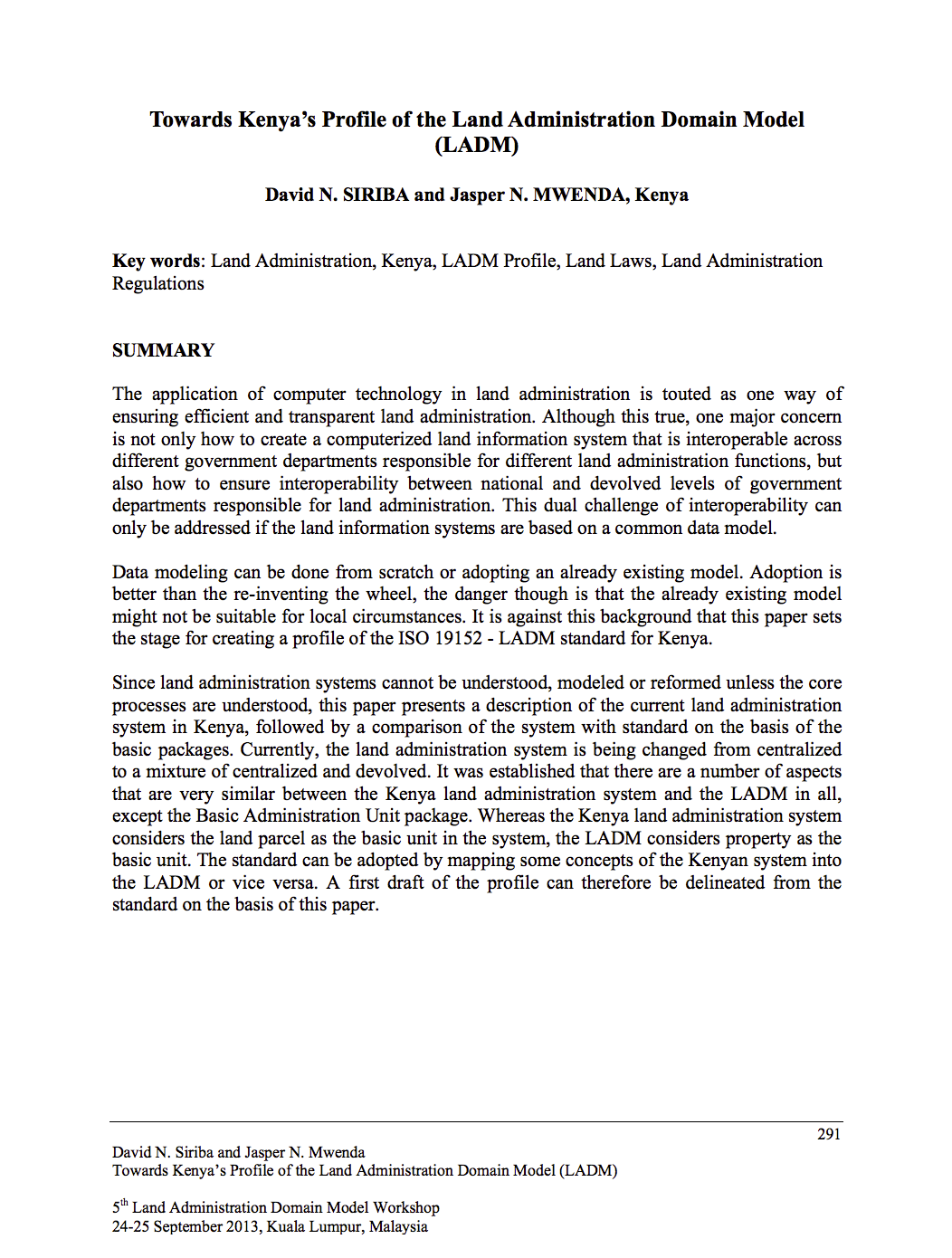Resource information
The application of computer technology in land administration is touted as one way of ensuring efficient and transparent land administration. Although this true, one major concern is not only how to create a computerized land information system that is interoperable across different government departments responsible for different land administration functions, but also how to ensure interoperability between national and devolved levels of government departments responsible for land administration. This dual challenge of interoperability can only be addressed if the land information systems are based on a common data model. Data modeling can be done from scratch or adopting an already existing model. Adoption is better than the re-inventing the wheel, the danger though is that the already existing model might not be suitable for local circumstances. It is against this background that this paper sets the stage for creating a profile of the ISO 19152 - LADM standard for Kenya. Since land administration systems cannot be understood, modeled or reformed unless the core processes are understood, this paper presents a description of the current land administration system in Kenya, followed by a comparison of the system with standard on the basis of the basic packages. Currently, the land administration system is being changed from centralized to a mixture of centralized and devolved. It was established that there are a number of aspects that are very similar between the Kenya land administration system and the LADM in all, except the Basic Administration Unit package. Whereas the Kenya land administration system considers the land parcel as the basic unit in the system, the LADM considers property as the basic unit. The standard can be adopted by mapping some concepts of the Kenyan system into the LADM or vice versa. A first draft of the profile can therefore be delineated from the standard on the basis of this paper.



